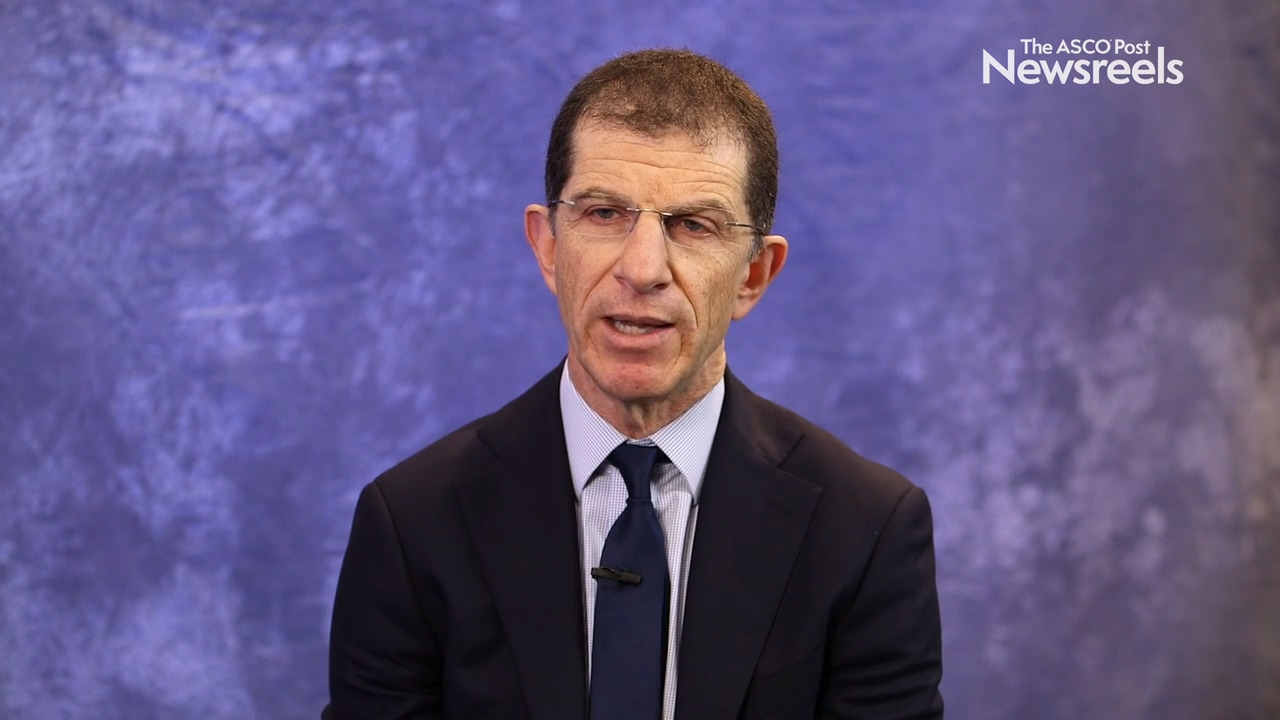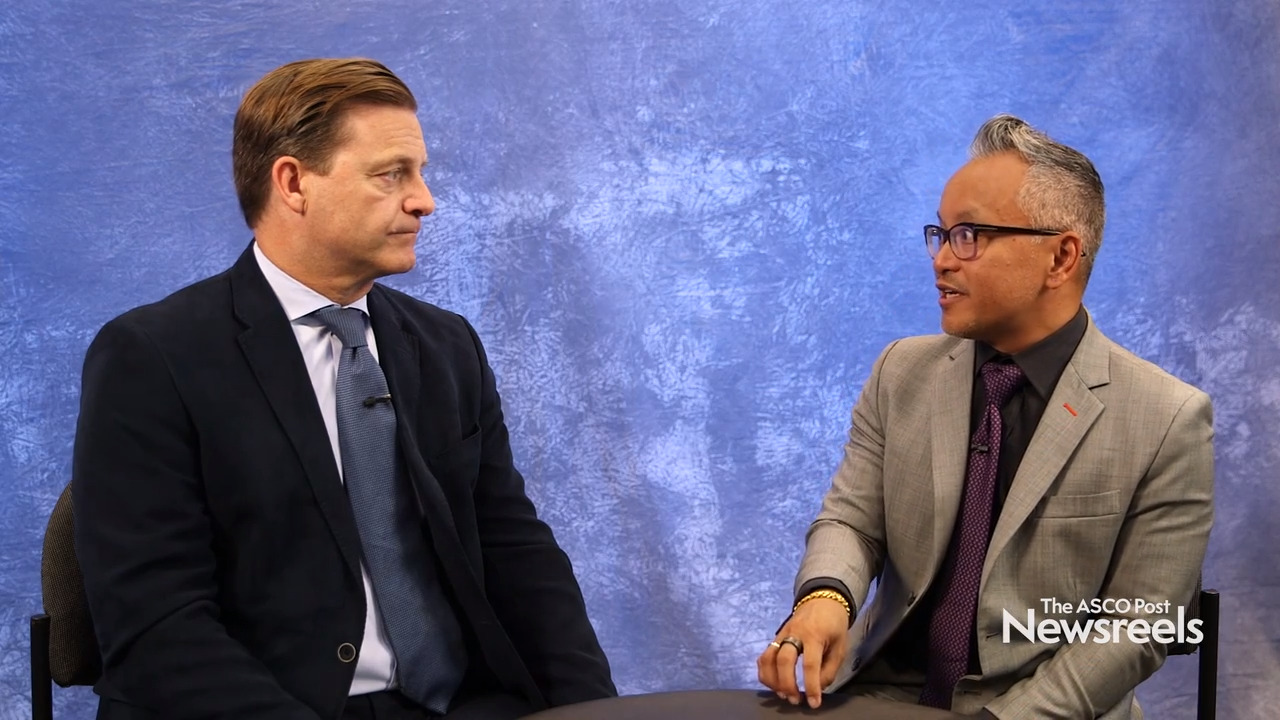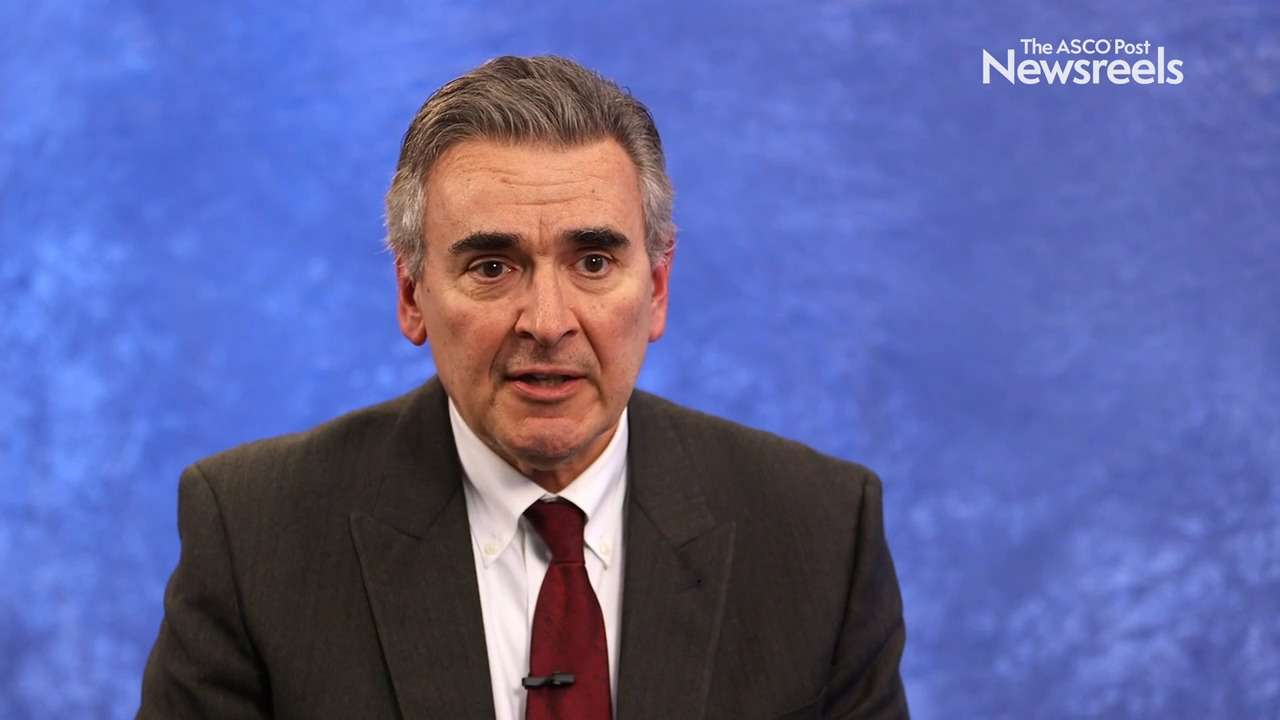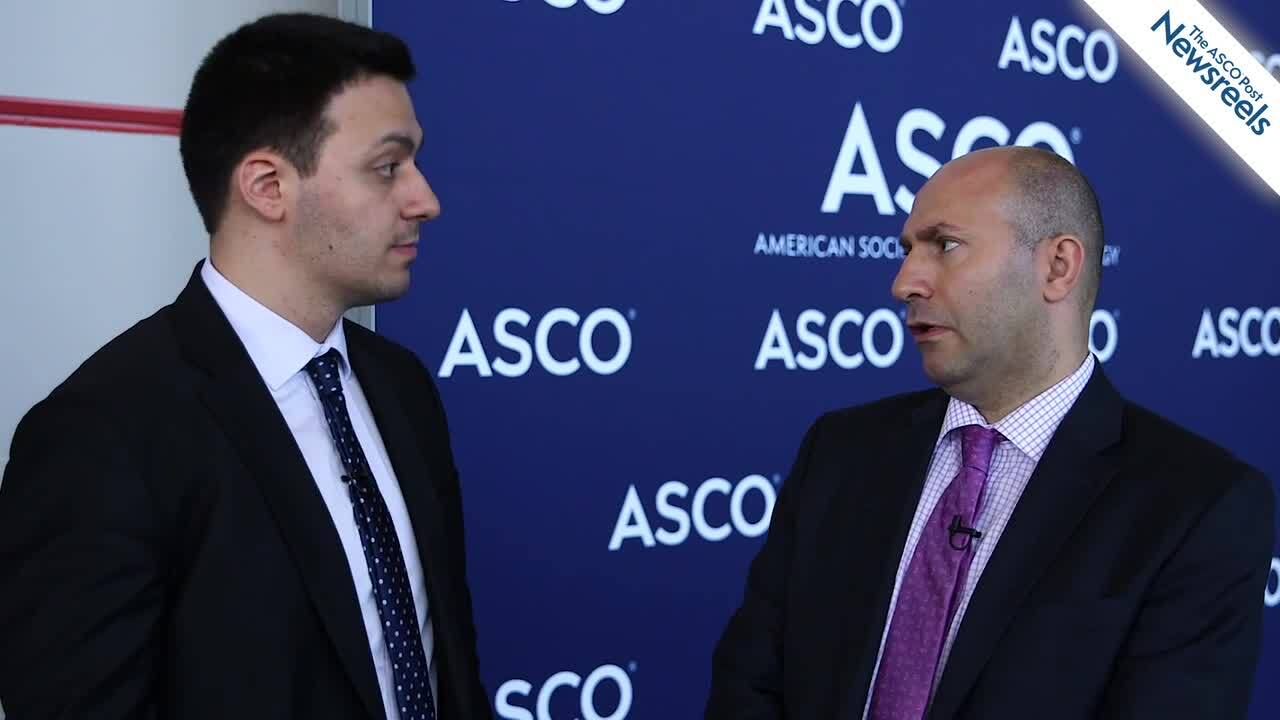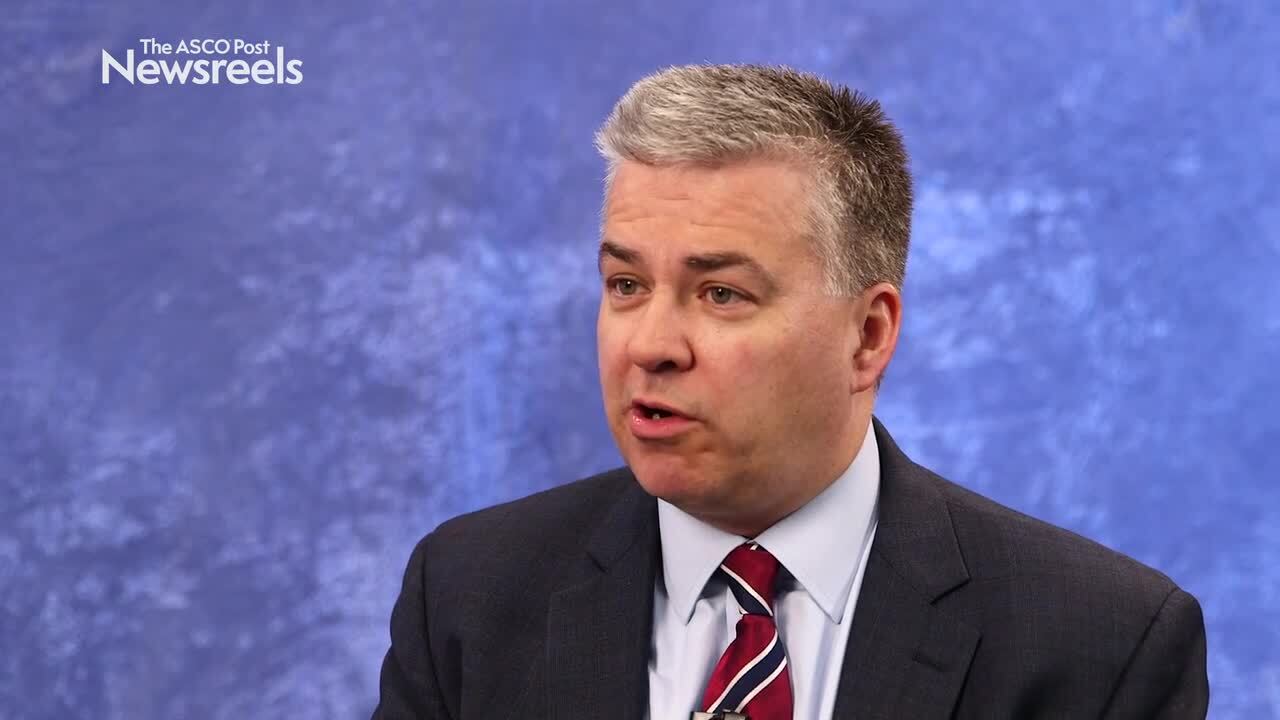Ahmad A. Tarhini, MD, PhD, on High-Risk Melanoma: Adjuvant Ipilimumab vs High-Dose Interferon-α2b
2019 ASCO Annual Meeting
Ahmad A. Tarhini, MD, PhD, of Emory University and Winship Cancer Institute, discusses phase III findings from the U.S. Intergroup E1609 trial, which showed survival benefits for patients with resected high-risk melanoma—for the first time in the history of melanoma adjuvant therapy (Abstract 9504).
Danny Rischin, MD, of Peter MacCallum Cancer Centre, discusses phase III results that support pembrolizumab with and without platinum-based chemotherapy plus fluorouracil as new first-line standards of care for recurrent or metastatic head and neck squamous cell carcinoma (Abstract 6000).
Don S. Dizon, MD, of the Lifespan Cancer Institute, and Matthew A. Powell, MD, of Washington University School of Medicine, discuss phase III findings on paclitaxel plus carboplatin vs paclitaxel plus ifosfamide in chemotherapy-naive patients with stages I to IV, persistent or recurrent carcinosarcoma of the uterus or ovaries (Abstract 5500).
Joseph A. Sparano, MD, of the Montefiore Medical Center and Albert Einstein Cancer Center, discusses how clinical risk stratification provides additional prognostic information to the 21-gene recurrence score and may be used to identify premenopausal women for more effective antiestrogen therapy (Abstract 503).
Toni K. Choueiri, MD, and Ziad Bakouny, MD, both of Dana-Farber Cancer Institute, discuss a retrospective review of genomically profiled patients with sarcomatoid/rhabdoid renal cell cancer who were found to have better outcomes with immune checkpoint inhibitors and to harbor mutations associated with poor prognosis (Abstract 4514).
Michael A. Thompson, MD, PhD, of Advocate Aurora Health, discusses the implications of the revised diagnostic criteria for multiple myeloma, which removed patients at the highest risk of disease progression from the smoldering group, and a new model for smoldering disease that incorporates revised cutoffs for the previously used parameters (Abstract 8000).
